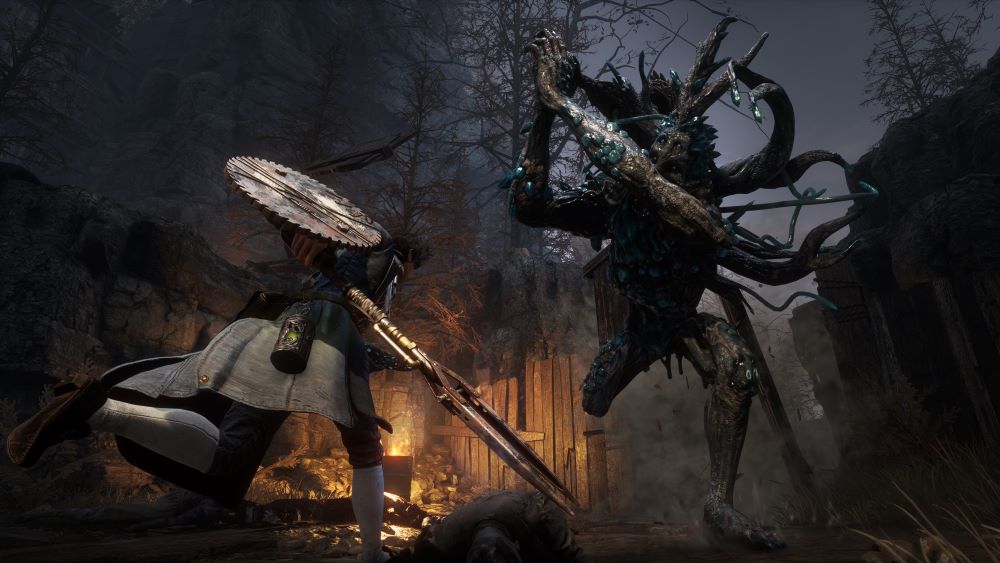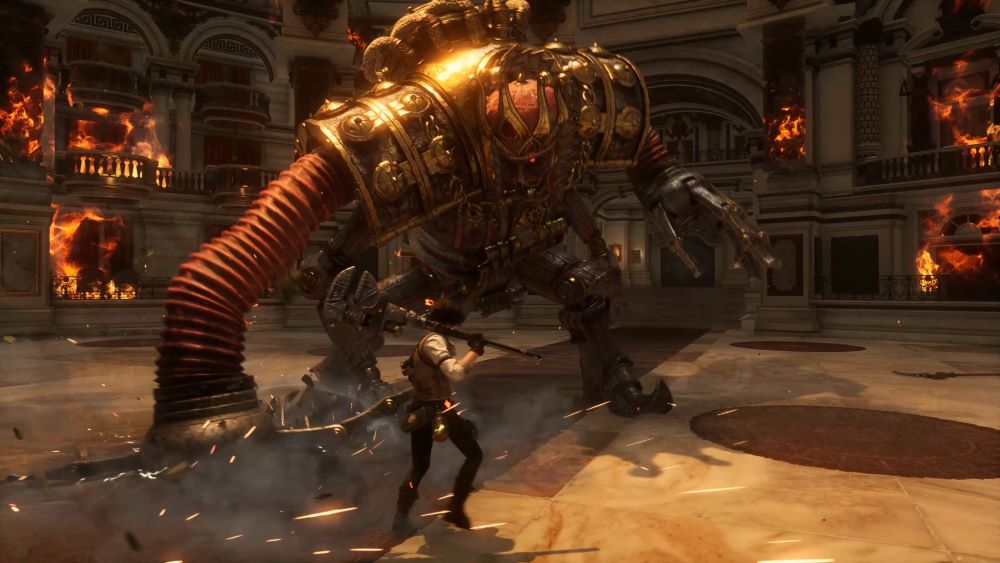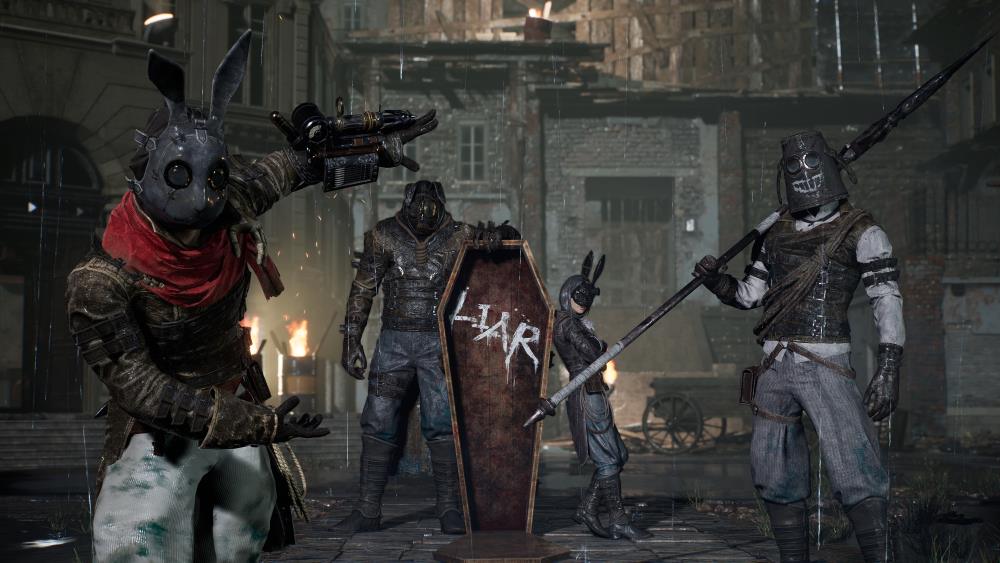Lies of P Review
Lies of P Review
We’ll all have to agree that the Soulslike subgenre has been very influential, and many studios have come up with their attempt at a title that could emulate the formula. While some may have succeeded (titles like Nioh and Wo Long come to mind), many have failed to capture the magic that FromSoftware regularly conjures.
Surely, a South Korean team from Neowiz and Round8 won’t find success in the subgenre, right? Well, Lies of P is anything but a flop, and if you told me that this game was created by FromSoftware, I might have even believed you for a second.
Lies of P is a fantastic effort that, despite copying most of the formula down, has enough things to make it stand out from the crowd. Not only does it copy but copies well, something not a lot of previous efforts have the privilege of saying, resulting in a great outing that deserves a place in your ever-growing collection.
Lies of P is as the name suggests, and players will take control of a robotic puppet named Pinnochio who journeys through the city of Krat to find and save Geppetto, become human, and stop the puppet uprising. It’s quite an interesting take if I’m being honest, and while I can see how some may not take nicely to its fairy-tale roots, the narrative plays out well enough to keep players interested in something other than its excellent gameplay. The fact that some or most of these characters have that familiarity factor plays a big role in players being invested in how it all unfolds.
There will be a LOT of familiar systems and mechanics here, as it is technically a clone after all. One look at the user interface and you can already tell that the game is a Soulslike, but the similarities extend to even the Stargazers (save points), Ergo (currency), and the usual stat allocations along with how they function. Sure, you can consider this a knock on the game, and Lies of P’s core loop and gameplay revolves around a well-trodden formula, but it does so with a polish that’s not seen in other titles.
Immediately noticeable is how Lies of P successfully recreates its world and the inhabitants within. It is very Bloodborne-esque in both aesthetic and atmosphere, and looks really well-made. The mechanical foes you face are equally impressive, with nice visual quality, fantastic designs, and animations that stand out. The game just looks and feels well-made, and this is very evident from the get-go.

Soulslike titles are often measured by their combat prowess, and Lies of P manages to keep its luster in this comparison. While Bloodborne is the obvious inspiration, it also takes some pieces from other titles, notably Sekiro, and fuses them into a fast-paced affair. Pinocchio can stagger enemies, opening them up to fatal attacks, along with Perfect Guard, a mechanic that requires precise timing to pull off. Players can also get back some of the chipped-off health due to blocking as they attack after, which is similar to Bloodborne in a sense.
Based on these principles, combat in Lies of P rewards players who take the fight to the enemies, which speeds up the overall pace of the game and really solidifies the comparisons to the previously mentioned titles. And in case it wasn’t obvious enough, players will also have access to what’s called the Legion Arm, which is the game’s take on Sekiro’s Prosthetic Tools, and will have options such as a grapple called the Puppet String.

I’ve laid out many similarities to FromSoftware’s titles, and some of you may already be sold on its premise and potential. Lies of P does not only copy but also introduces some of its own wrinkles to improve the formula, one of which is a feature called “Weapon Assembly,” allowing players to break down weapons into 2 parts – blade and handle – and mix them up for some truly amusing and devastating combos.
Digging deeper into this system, the blade component affects damage stats, while the handle dictates the attack type, making combinations of both a nice thought process that players will have to go through while playing. This system alone will determine how aggressively you approach combat, and there are a ton of combinations to go through notwithstanding how absurd they may seem to be.
Since you are controlling Pinnochio, you can actually lie in the game, and this isn’t just a dialog choice but has story consequences as well. They’re a welcome addition to a subgenre that usually just feeds you information through scattered pieces of notes and journals.

I’m no pro at Soulslike titles, it ain’t my first rodeo as well, and while Lies of P’s combat feels slick and satisfying, it did take me a while to get accustomed to the pace of it all. Dodging felt really tight, and it was a timing window that I couldn’t get used to until about a couple of hours into the game. I can’t explain it too well, but it felt like there were very little to no I-frames at all, requiring me to be almost perfect with timing. Despite an upgrade to the P-Organ (I’ll explain myself in a bit), dodging feels like something that players will take a bit of time to get used to.
So… the P-Organ. Despite sounding like a weird puppet prosthetic, the P-Organ is basically a skill tree in Lies of P. You can choose to upgrade various abilities here, many of which are upgrades to how many Pulse Cells (potions, basically) you can use, or how long enemies remain staggered. These upgrades are very useful, and it would be wise for players to plot out how they want their playstyle to work when choosing a P-Organ upgrade.
One other misstep I have with the game is its overreliance on second phases with bosses. Other titles will have a few with a second phase (the Sekiro Guardian Ape comes to mind), which comes off as a surprise that may or may not be pleasant. Point is, Lies of P does it so frequently that it isn’t a surprise anymore, and it really feels frustrating at some point, feeling like it’s only there to lengthen the fight. Enemies are the same, and it feels like there’s always something hiding in that conspicuous corner, dampening the surprise.
This feeds into the level design of the game, which is more linear than I would have liked. I’m not a fan of too many winding paths and roundabout locations with ten corners to explore, but a good chunk of the levels felt too on-the-rails for me. While there are some that push you to explore, like the Arcade, veteran Souls players may find most levels too straightforward for their taste.

Despite these gripes, the performance on the PS5 is super smooth and clean. Barring any frame dips that I may not have noticed while playing, Lies of P is an extremely optimized experience that felt really polished during my 32-hour playthrough. The game is also an aural treat, and if it wasn’t evidenced by the inclusion of an LP vinyl in the collector’s edition, the haunting melodies and orchestra accompaniment during boss battles are superb.
What we liked:
- Combat is fast and fantastic
- Weapon assembly feature is creative
- Audio and visual quality are excellent
What we didn’t like:
- No multiplayer aspect
- Dodging feels a bit too tight
- Overreliance on boss second phases
Verdict: Buy it!

Lies of P is a stellar outing that, despite reusing a lot of the major components from other Soulslike titles, does things well enough to make it stand out from the pack. It even adds great features like weapon assembly to give a refreshing twist to an overly familiar formula.
Mileage may vary, but getting the dodge timing down was a problem for me and I felt that it was very tight. This led to a lot of frustration over seemingly easy foes that wiped the floor with my corpse time and time again. Paired with most bosses getting an unnecessary second phase, it somehow felt like the game was trying to hard to do things differently.
Overall, Lies of P is a game that’s worthy of your time, especially if you’re a fan of similar titles. Despite a packed month of releases, this game is something you’ll want to keep your nose on.
*Lies of P was reviewed on a PS5 with a review code provided by the publisher.



